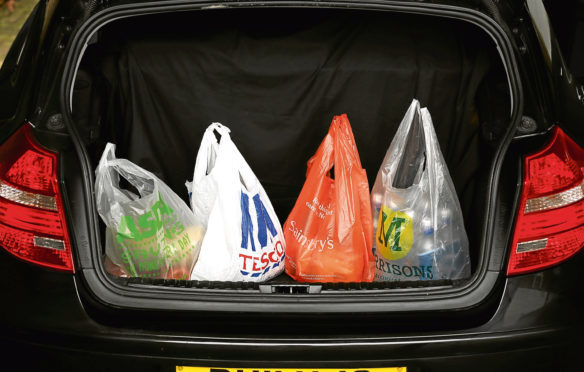Supermarket efforts to stock home-produced lamb in the run-up to Easter have been praised by farmers’ union NFU Scotland.
However Asda and Waitrose have come under fire after the union’s secret shoppers failed to find any Scottish lamb in the stores they visited.
As part of its annual Easter Lamb Shelf Watch, the union’s shoppers examined 3,032 packs of lamb on shelves in 48 supermarket stores across Scotland.
The survey, which took place between March 20-27, found that 77% of the lamb on offer was of Scottish or British origin. This is up from a figure of 44% last year. It found that 41% of the lamb was Scottish, 36% was British and 23% was imported.
Supermarkets which previously made commitments to stock 100% home-produced lamb in Scotland – Marks and Spencer, Morrisons, Aldi and the Co-op – were found to be honouring their pledges. The only exception was a small amount of organic New Zealand lamb found in Marks and Spencer stores.
“With Scotland’s sheep producers approaching peak lambing season, it is a boost to see Scottish retailers bolstering their support for Scottish produce,” said NFUS president Andrew McCornick.
“Today’s results back up our belief that the season for home-produced lamb availability could be extended with retailer support, and we recognise the efforts being made by Aldi, Co-op, Marks and Spencer and Morrisons.”
He criticised Sainsbury’s – the UK’s second largest retailer – for stocking more than 50% imported product, and said it was disappointing that none of the Asda stores visited had any lamb on offer which was labelled as Scottish.
“We will continue to work with retailers to see what more can be done to support domestic food, and we will ask them to work with us to secure necessary farm support following Brexit to allow sustainable food production,” added Mr McCornick.
Of the Aldi stores visited, 96% of lamb on offer was Scottish and the remainder was British, while in Asda, 69% of the lamb was labelled as British and the rest was from New Zealand.
The bulk of the lamb in the Co-op – 90% – was British and 10% was Scottish, while in Lidl, 70% was Scottish, 3% British, and 27% was from New Zealand.
Marks and Spencer had 81% Scottish, 15.5% British and 3.5% New Zealand organic, while in Morrisons, 65% was Scottish and 35% was labelled as British.
Sainsbury’s was found to have 20% Scottish, 22% British and 58% from New Zealand, while Tesco had 46% Scottish, 21% British and 33% from New Zealand. In Waitrose, only 6% of the lamb was British and the rest was from New Zealand.
